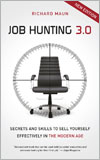better business blog
Tips and stories to add value to you and your organisation

Skype Love (And Frustration)
Don’t we just love technology! In the old days (as my kids love to call them) before smart phones and the internet, business was conducted using the telephone, face to face, or via the magic that was the fax machine.
Obviously that was long before the electric light was invented, according to my children, who have a skewed sense of history, in the way that kids do.
Luckily we now have electric lights and so all is good!
I can remember in the 2008/9 recession wondering how to rebuild my business and hitting on the idea of using Skype. Instead of being constrained by geography, suddenly my market place was the world. I don’t mean that to sound grand, it’s just a statement of fact.
My network is dispersed and it’s always easier to sell to people who know you, than stay local and spend weeks slogging about and getting to know new people. I meet new people all the time and that’s great, but when you’re in a hurry it’s easier to find a shortcut. Skype was mine.
I know there are other video systems and I like Skype because it’s ubiquitous and free. Zoom is good too and if you want to explore that, then go for it.
Skype has been good for business and I’ve coached all over the world from the comfort of my house, although time zone differences can make for early starts and late finishes.
The reaction from colleagues has been mixed, with a good percentage of them suggesting that Skype coaching isn’t real coaching. It is. Clients are real people at all times and Skype bridges a gap, saves a lot of driving and is a gateway to good work.
I use Skype for my own supervision and for counselling work too. We contract for safety and the work done is professional and purposeful.
So I love Skype. It’s good to use technology in ways that benefit clients and business. My bet is that in 10 years time we will all be using video conferencing for home use as a standard feature, and not just for the occasional FaceTime.
My frustration is that the technology doesn’t always work so well and that Microsoft, in their wisdom, like to muck about with the ability to invite new contacts.
In the old days you could invite a new contact with one button push. Thanks to ‘improvements’ I now have to remember where the sub menu is, scroll down a long way, past Lands End, click on a button, pause to make a cup of tea, send an invitation email and then turn to face the setting sun in a precise alignment that ancient druids would have approved of.
And if you think I’m exaggerating, then please feel free to write in with the exact sequence needed to invite a new contact. (If you have the patience to work it out first).
Technology is there to enable business and we can use it safely and ethically. Lots of counsellors (I’m the therapeutic variety, which makes for a great addition to my coaching work) may say that the work isn’t the same if you’re not physically co-located. That may be true for certain types of client and yet I do wonder, that if there was a law passed insisting all counsellors had to use video conferencing, then those same people would adapt to the technology pretty quickly. Or go out of business.
I’m happy to debate the point. This piece is about encouraging us all to see technology as a force for good. Personally I’d rather use Skype and see the supervisor I want, than have to use someone local that isn’t my first choice.
The world is there for us all to explore and if you’re thinking that online work isn’t for you, I’d invite you to be brave and give it a go. It may bring more clients to you, reduce overhead costs and be an easy way to tap into new markets.
Love it, hate it, or feel frustrated by it, Skype is, in my opinion, a force for good in business.
This week, have fun with Skype and its cousins.
Next week: A Business Book Review (Which One Will It Be?)
e-publishing
Click icon for details


recent posts
browse archive
books
Click cover to view details on Amazon

How to Keep Your Job
Brilliant ways to increase performance, stay employed and keep the money rolling in
Published 2011 Marshall Cavendish
208pp

Job Hunting 3.0
Secrets and skills to sell yourself effectively in the Modern Age
Published 2010 Marshall Cavendish
260pp

 RSS
RSS


